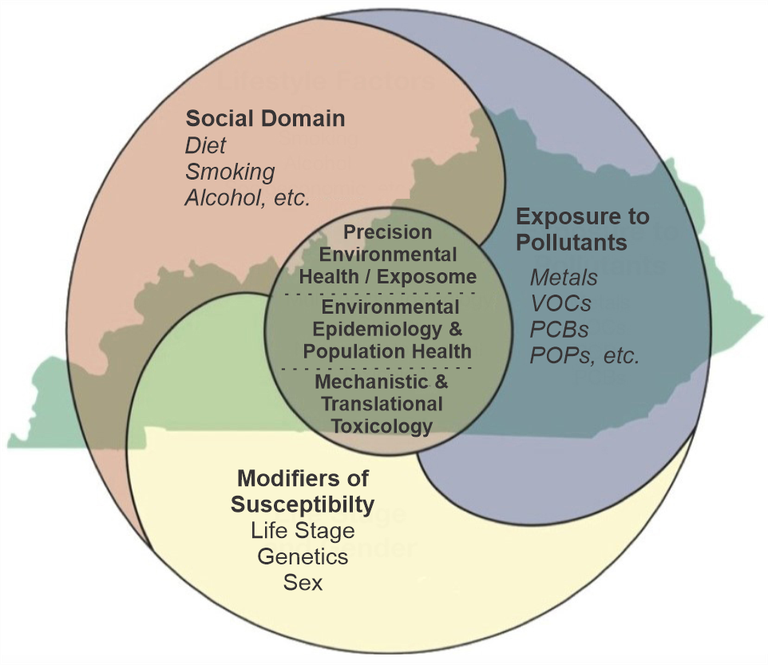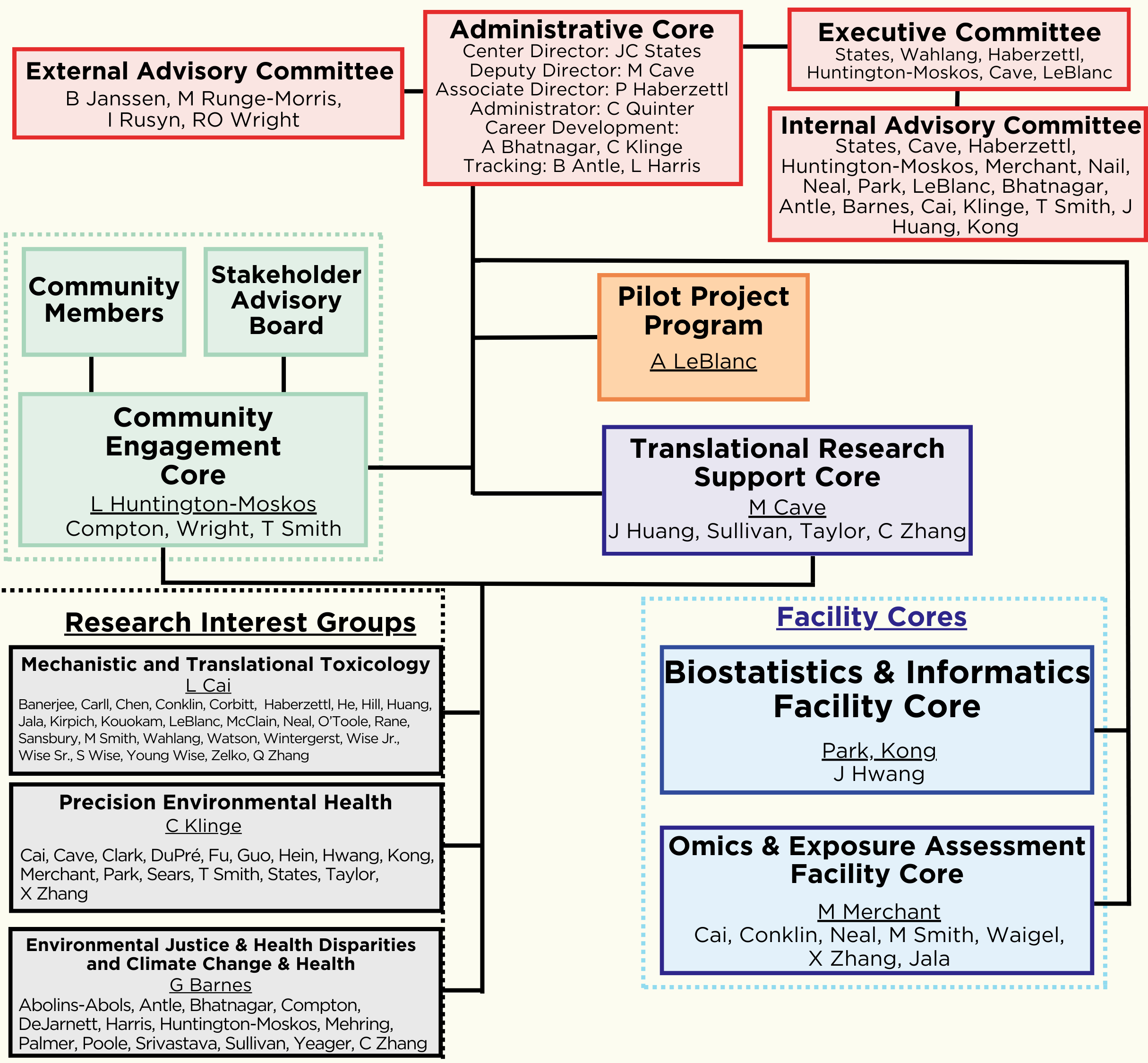About Us
Strategic Vision
Center Director J. Christopher States, Ph.D.
Chronic exposure to environmental toxicants, either man-made or natural, plays a major role in the etiology of a spectrum of human chronic diseases, ranging from psychological disorders to cancer. Likewise, lifestyle factors including diet, exposure to tobacco smoke, consumption of alcohol, complications of addiction, and the built environment also are major etiologic environmental factors for chronic diseases. It has become clear that neither toxicant exposures nor lifestyle factors are sole actors, and that individual susceptibility to disease governed by genetics, as well as developmental windows of susceptibility, are major determinants of disease outcome. Even in individuals with genetic susceptibility exposed at susceptible stages of development, fulminant disease may require ‘two hits’, e.g. toxicant exposure plus life style factor. Thus, the etiology of chronic disease is quite complex and there is a great need for developing transdisciplinary research to reveal the mechanisms of these interacting factors in pathogenesis. The University of Louisville (UofL) Center for Integrated Environmental Health Sciences (CIEHS) focuses on this need. The CIEHS will provide leadership in environmental health research, promote investigation of the interactions of chronic exposure to environmental toxicants and lifestyle factors in pathogenesis, and develop the next generation of environmental health researchers. Our studies utilize model systems in the laboratory, the larger ecosystem by investigation of pollution effects on wildlife, and the human laboratory provided by the Kentuckiana region and environs (Louisville Regional Community) in collaboration with community partners.

Theme
The central theme of the UofL CIEHS is that the etiology of chronic diseases is driven by interaction of environmental toxicants with lifestyle factors, and these interactions are influenced by life stage, genotype and gender (Fig.1).
Goals
The long-term objective of the UofL CIEHS is to build a framework to integrate the interactions of pollutants and life style factors in human health and disease, as modified by life stage and gender. We will achieve this long-term objective by accomplishing the following specific aims.
1. Promote interdisciplinary collaborative research in current and new areas of environmental health research.
Opportunities for collaboration will be promoted through our educational programs and our Pilot Project Program (PPP).
2. Translate basic research findings.
Our Integrated Health Science Facility Core (IHSFC) will connect basic science investigators with clinical researchers and the UofL Clinical Trials Unit to assist in translation of basic research findings.
3. Recruit new and established investigators to environmental health science research.
Our Career Development Program will recruit and mentor new investigators in environmental health research. Our PPP will offer grants to recruit established investigators with unique skill sets to collaborate with CIEHS members.
4. Promote community engagement and community-based research.
Our Community Engagement Core will provide programs in the Louisville Regional Community to educate health care providers and community members (including youth groups) in environmental health issues and CIEHS investigators in community-based research, and will connect community stakeholders with CIEHS investigators to apply for pilot funding to perform ‘citizen science’ projects.
Center Organization
Structure and Function of CIEHS
The CIEHS is led by an Administrative Core, which oversees operations of the Integrated Health Science Facility Core (IHSFC), Community Engagement Core (CEC), Pilot Project Program (PPP), two facility cores (Biostatistics & Informatics Facility Core [BIFC], Integrated Toxicomics & Environment Measurement Facility Core [ITEMFC], and three Research Interest Groups (RIGs); Multi-Organ Toxicology RIG, Cancer RIG, Neurodevelopment RIG).

